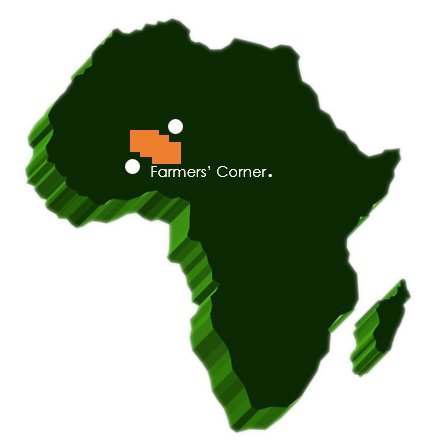
Kevin Miller
@kevinjmiller10
Followers
1,311
Following
419
Media
5
Statuses
86
Computational cognitive neuroscientist. Research scientist at @DeepMind Neuroscience Lab. Researcher at CortexLab, UCL.
London, England
Joined August 2016
Don't wanna be here?
Send us removal request.
Explore trending content on Musk Viewer
Olympics
• 1993960 Tweets
Venezuela
• 808405 Tweets
#OpeningCeremony
• 692658 Tweets
#ceremoniedouverture
• 682807 Tweets
オリンピック
• 358471 Tweets
Celine Dion
• 331435 Tweets
Francia
• 265309 Tweets
Seine
• 250649 Tweets
The French
• 248162 Tweets
Lady Gaga
• 193889 Tweets
#CeremoniaDeApertura
• 189583 Tweets
フランス
• 157329 Tweets
Gojira
• 148963 Tweets
Last Supper
• 110562 Tweets
Satanic
• 105591 Tweets
JJOO
• 94251 Tweets
Christianity
• 62415 Tweets
Marie Antoinette
• 60744 Tweets
Vive la France
• 52621 Tweets
Halsey
• 45646 Tweets
Eiffel Tower
• 37612 Tweets
Cène
• 37303 Tweets
Edith Piaf
• 30157 Tweets
セーヌ川
• 30069 Tweets
T-1000
• 27637 Tweets
マリーアントワネット
• 26703 Tweets
Santa Ceia
• 25415 Tweets
ミニオン
• 22973 Tweets
Jordan Love
• 21950 Tweets
Britney
• 21761 Tweets
ムビチケ
• 18431 Tweets
Mahoma
• 18410 Tweets
#Smackdown
• 17217 Tweets
Sodoma y Gomorra
• 16405 Tweets
エッフェル塔
• 15842 Tweets
セリーヌ・ディオン
• 10646 Tweets
Maomé
• 10242 Tweets
愛の讃歌
• 10118 Tweets
Last Seen Profiles
Applications are open for the
@GoogleDeepMind
Student Researcher Program!
There will likely be projects available to work with me and with others in computational neuroscience. If interested, please feel free to get in touch!
Learn more and apply here:
6
100
455
Excited to be organizing a workshop on Model-Based Cognition at
#cosyne2018
with
@kimstachenfeld
,
@basvanopheusden
, and
@roozbeh_kiani
. We've got a great lineup of exciting speakers and topics, it should be a fun time!
0
7
25
Published last week as a Theoretical Note in
@APA
Psychological Review, with awesome co-authors
@amitaishenhav
and
@ealudvig
.
Also available as a preprint on
@biorxiv_neursci
1
1
8
I am excited about applying approaches like this to a broader range of datasets, and about using neural networks for scientific discovery more generally.
Thanks to brilliant and inspiring co-authors
@eckstein_maria
,
@mattbotvinick
, and
@zebkDotCom
!
0
0
8
@JamesMHyman
@guido_meijer
Is this the kind of thing you're looking for?
Nonsense Correlations in Neuroscience, by
@kennethd_harris
1
1
7
@twitemp1
@IrisVanRooij
But: you shouldn't have to take my word for that, and you shouldn't have had to look up a previous paper to understand this one. I'll address both of these in the next preprint iteration. If you have more thoughts on the paper, I'd love to hear them (either here or by email)!
1
0
3
@twitemp1
@IrisVanRooij
Hi Esther, thanks for pointing this out! I see you've found our previous paper, where we did a lot to characterize and validate the behavior. The rats in this paper are like those rats in all the ways that matter.
0
0
2
@KateWassum
@A_Izquierdo1
@MelissaMalvaez
@NTlichten
@ashkatemorse
Thanks! I followed the lead of Schoenbaum lab, and aimed for the border of LO and AIC ("lateral OFC")
1
0
2
@rei_akaishi
@brody_lab
Best data I know of here are from Matt Gardner at Schoenbaum lab: Silencing OFC in an economic choice task has no effect on behavior.
I agree that checking this out in a one-step learning task would be super informative!
1
0
2
@rei_akaishi
@twitemp1
The simulations we did here are all fully-observable, but I think the ideas can generalize straightforwardly to the partially-observable case. Simplest would probably be to model habits as direct S-R links from observations onto actions.
1
0
2
@QueenieLB
@KateWassum
Great question! I'd been imagining some kind of learning or update process during the test period (as per your other tweet). But this literature is definitely something I want to think about more deeply. Lots of differences between behaviors, so lots of possibilities!
0
0
2
@MelissaJSharpe
I do! In this paper, we model the S-R associations as value-free ("cached policy"), and argue that this has some advantages vs. modeling them as MF-RL's "cached values".
0
0
1


























